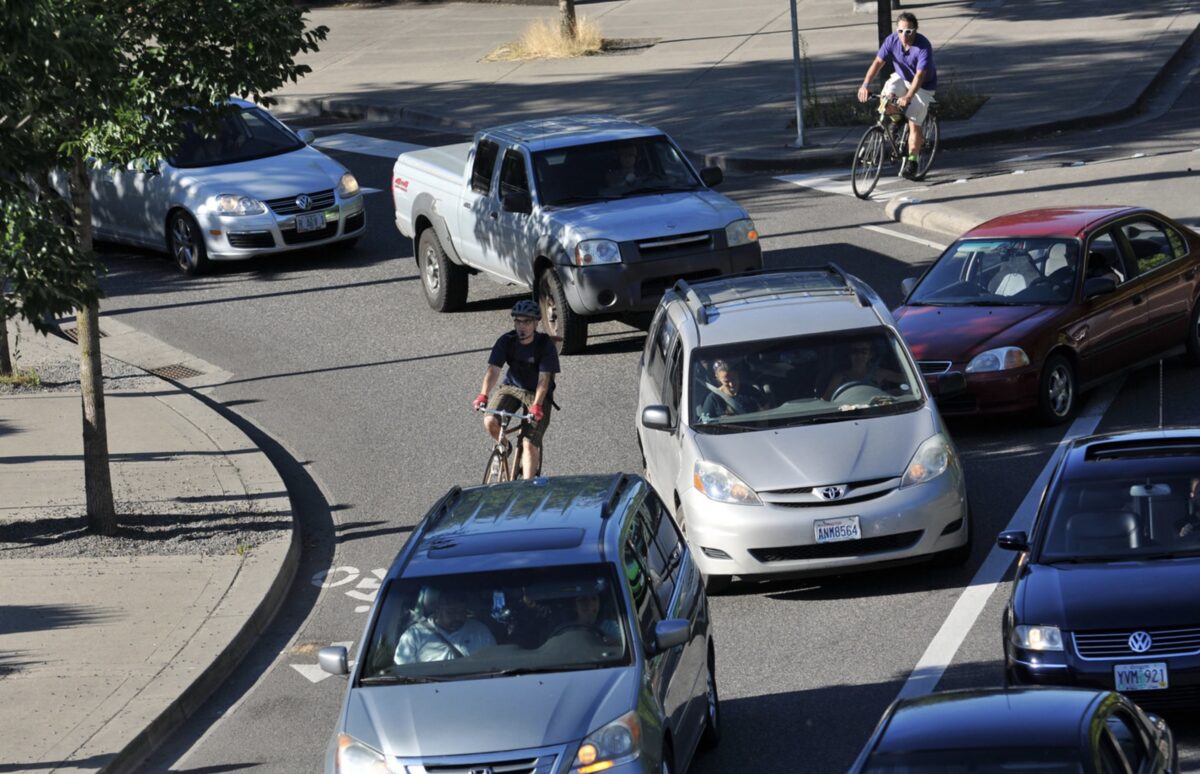 What would change if all these were e-cars? (Photo: Jonathan Maus/BikePortland)
What would change if all these were e-cars? (Photo: Jonathan Maus/BikePortland)
Oregon is the latest state to agree: gas cars are passé.
On Monday, members of the Oregon Environmental Quality Commission approved a rule to ban the sale of new gas-powered passenger vehicles by 2035. This comes after California regulators voted to phase out gas-powered cars in the state back in August with their Advanced Clean Cars (ACC) II Rule. This was a very big deal not only because of California’s internationally infamous car culture, but also because its government is so influential for other states across the country.
Often, where California leads, other states follow — including when it comes to car emissions regulations. Shortly after California moved to do away with the combustion-engine vehicle, New York enacted the same regulations, along with Massachusetts and Washington — and now Oregon.
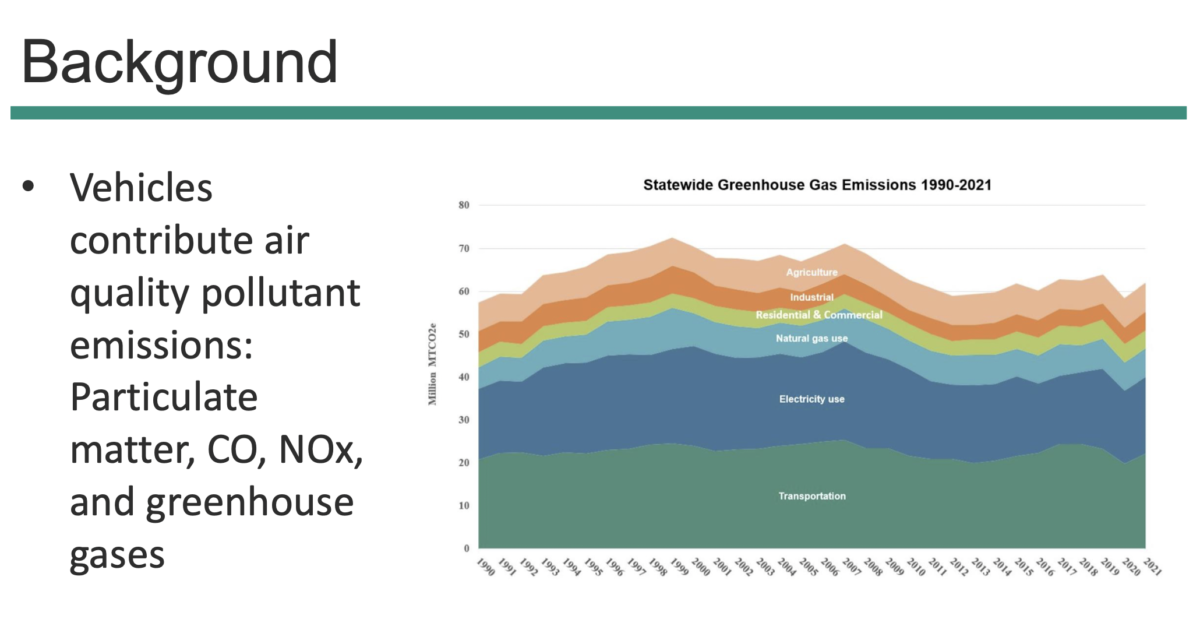
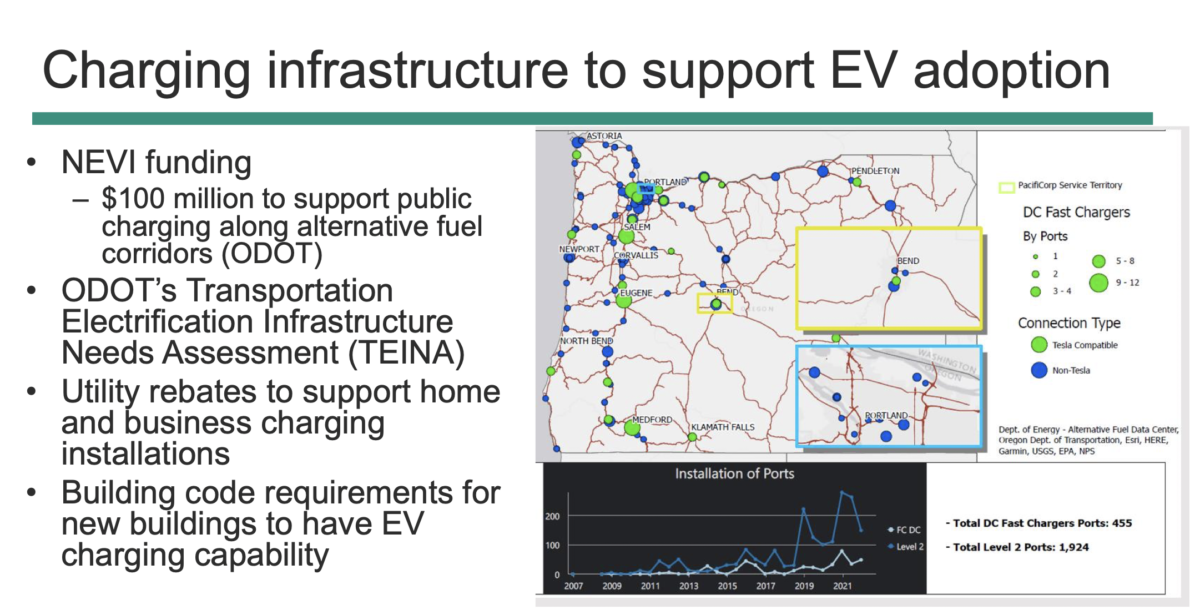
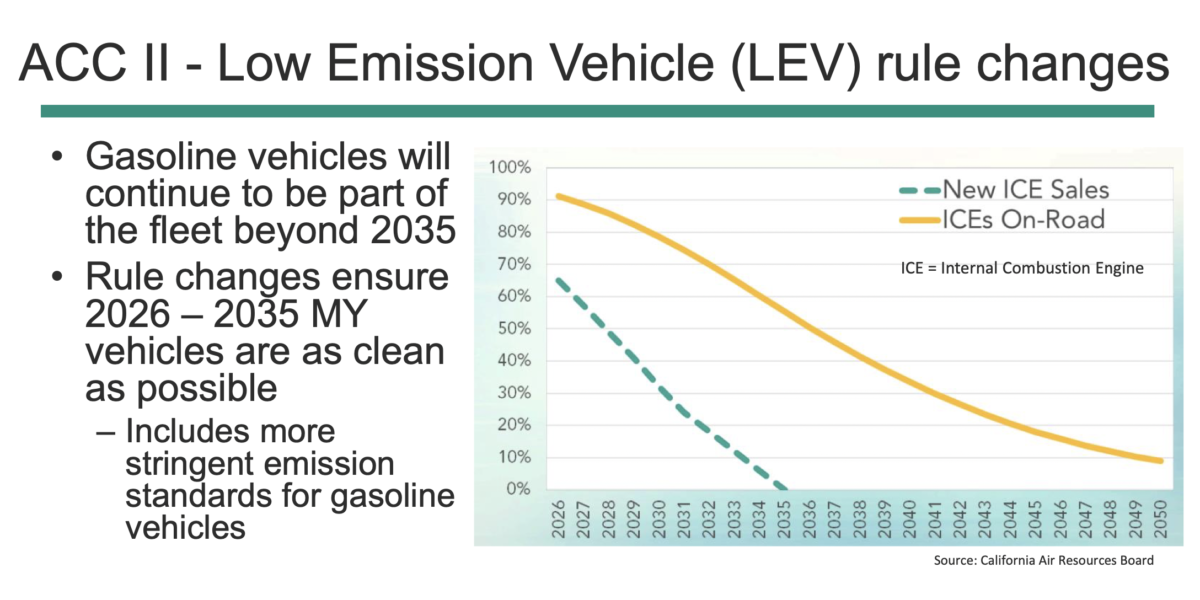 Slides from the Oregon Department of Environmental Quality presentation on the new rule. (Source: Oregon DEQ)
Slides from the Oregon Department of Environmental Quality presentation on the new rule. (Source: Oregon DEQ)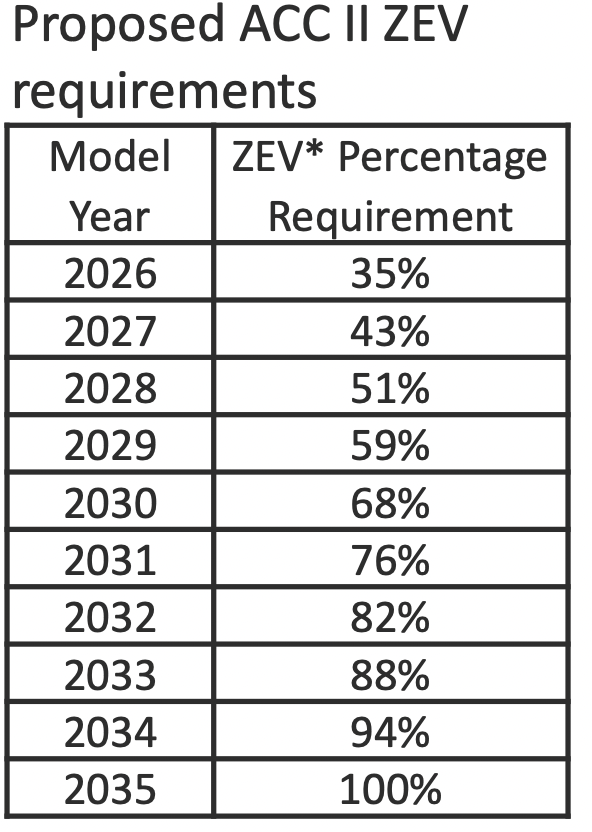 The ZEV roadmap. (Source: Oregon DEQ)
The ZEV roadmap. (Source: Oregon DEQ)
According to the rule, zero-emissions vehicles include electric cars, hydrogen fuel cell vehicles and plug-in hybrids (which have a longer-lasting battery than traditional hybrid cars). The rule grants that there will still be gas-powered vehicles on the road in 2035, however, since the ban is only on new car sales. People will still be able to drive and sell their old gas-powered cars on the used market. But as charging technology grows ubiquitous and electric cars become less expensive and are more readily available on the used market, electric car advocates hope their impact will be negligible.
Essentially, Oregon is simply adopting California’s ACC II Rule exactly. This rule “establishes a year-by-year roadmap” for zero-emissions vehicle (ZEV) sales leading up to 2035. It’s going to take a lot of work to get Oregon to get there. According to the Oregon Department of Transportation, about 8% of new cars and trucks sold in Oregon were electric as of last July. The ACC II roadmap says that number is going to need to more than quadruple in less than four years for us to meet 2035 goals.
People addressed these concerns and more to the Oregon Department of Environmental Quality, cautioning that there isn’t enough charging infrastructure in rural areas and for people who live in multiunit dwellings. People are also concerned about the higher upfront cost to purchase electric or zero emissions cars.
But there are certainly city, state and federal resources dedicated to solving these problems. ODOT is using a substantial amount of federal dollars from the Infrastructure Investments and Jobs Act to increase electric car charging stations across the state, including in more rural areas. And the City of Portland has initiatives to make our electric vehicle charging system more robust, one being a change in zoning regulations that will make it easier for people who live in multi-unit dwellings to charge their electric cars. And there are several e-car rebate programs in Oregon, some specifically targeted at people who live on low-incomes, to make the switch more affordable (not to mention all the money you’ll save on gas in the long-term).
While phasing out gas-powered engines will save our lungs and aid in the climate change battle, we’d be remiss to ignore the remaining drawbacks. E-cars are still cars whose oversized footprint takes up precious space from other road users (in addition to the environmental footprint of battery materials). They’re also heavier and quieter, and if you or a loved one is hit by a driver while walking or biking, it won’t give you much comfort to know their car runs on electricity instead of gas. And continued investment in cars means transportation agencies will justify spending billions on freeway expansion projects instead of allocating money toward things that are much more efficient, safe, affordable, and planet-friendly like electric bikes, better road designs, and so on. (But credit where it’s due: we might pass statewide e-bike rebate legislation next year!)
In the end, phasing out gas-powered cars will be nice for our lungs and bad for Big Oil; but it won’t solve all our problems and it could create new ones. Most environmental and transportation advocates agree there needs to be a balance between investment in electric cars and other modes of transportation. Hopefully government regulators will strike it.

Taylor has been BikePortland’s staff writer since November 2021. She has also written for Street Roots and Eugene Weekly. Contact her at This email address is being protected from spambots. You need JavaScript enabled to view it.

